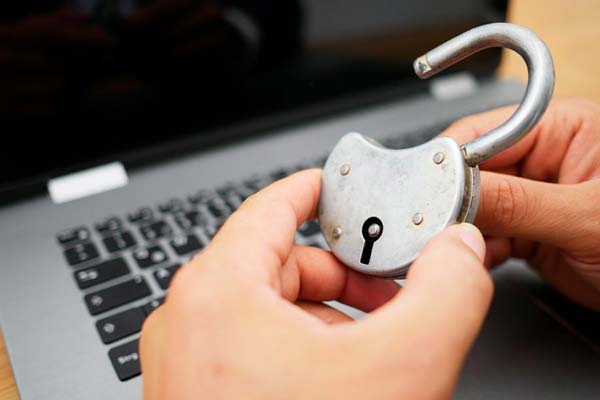

Remote computer monitoring seems to be a movie trick reserved for hackers. Today, it's easier than ever to view the desktop contents and browser history of someone else's computer, just by installing keylogger software. We discussed how spyware works in today's article.
Spyware surreptitiously intercepts information from your computer, collects various data such as logins, and sometimes even automatically installs other unwanted programs and redirects website addresses to increase the amount of spam messages displayed. Spyware programs are designed in such a way that their detection and removal is as difficult or impossible as possible.
They are installed in stealthy ways such as when opening email attachments or visiting suspicious websites. Spyware falls into several categories, including: Trojan horses that exploit security holes to hijack logins and passwords, rootkits that facilitate permanent remote access to a computer, and adware that redirect users to dangerous locations on the network.


Contrary to appearances, not all spyware is illegal and harmful. Not only that, but we encounter beneficial versions of them every day. We're talking about the popular cookie (cookie), which asks for our consent at nearly every step of the way while browsing the Internet. These are files downloaded from a given website and saved on the end device, whose main task is to ensure that the page being viewed works properly.
Cookies personalize advertisements and displayed content according to user preferences, remember products added to shopping carts in online stores, and allow voting in surveys. Although cookies themselves are harmless, they are sometimes used by hackers to steal personal information and track user activity.
Another type of legitimate spyware is cell phone tracking software. What this software does is secretly retrieve information from the device, including browser history, device location data, desktop views, and more. Unlike traditional spyware, stalkerware does not harm devices.
However, it should be remembered that the user is obliged to inform the owner of the device if he intends to use the information collected in this way in any way. Therefore, stalking software should only be used to confirm one's own suspicions, such as a suspected cheating spouse, protective children, or lazy employees. Dissemination of the obtained data to third parties may lead to serious legal consequences. Keylogger - How does it work?
Keyloggers are by far the most common type of legal tracking software. They are used to collect characters typed on the device keyboard. This provides information about passwords entered in search engines, the content of sent emails and chat conversations.
However, a keylogger must be physically installed on the target device. It cannot be done remotely. After a successful installation, the application runs in the background, invisible to both the computer owner and antivirus programs. The new generation of keyloggers not only collect character records, but also have many other useful functions. For example, allows you to capture screenshots and record sounds picked up by the microphone on your computer. The collected files will be sent to the specified email address.
It's not always easy to install a keylogger on someone else's computer, and here we'll add ourselves that it's even more difficult to install when the device is password-protected. cell phone spyware

Covert monitoring can also be done using a smartphone. Such operations are provided by cell phones loaded with spyware. An Android Extreme model with a wide range of features. It works covertly and non-intrusively on the device. With its help, users can gain full access to their phones, including, for example, intercepting sent text messages, emails, and chat messages, GPS location tracking, and even eavesdropping and recording live phone conversations.
Collected data and configurations can be easily accessed through the www online panel. However, spyware must be physically installed on the phone. Unfortunately, there is currently no dedicated solution for iOS smartphones - only software for Android phones is available.
Spy programs don't have to serve malicious purposes, and when used correctly, they can help in many areas of life. Parental control, track the location of lost or stolen mobile phones, monitor employee behavior, obtain evidence of marital betrayal. It allows you to confirm or dispel your suspicions before taking further necessary steps.
Security questions are one of the oldest forms of authentication. Despite many modern solutions, they continue to enjoy an indomitable popularity. Their usefulness is based on the fact that the account owner is the only one who knows the correct answer. While not a particularly effective solution on their own, they can still be effective when combined with other security measures. Therefore, they are usually only part of the verification process, for example, they generate or send an email with a reset password link.
On the other hand, no technology can guarantee complete, reliable protection. However, every added security measure reduces the risk of falling victim to cybercriminals. For a 2SV inspection problem to fulfill this role, it cannot be templated. Don't use the website's tips, but build your own unique protective barrier.
What is two-factor authentication?
Two-factor authentication is the process of verifying your identity when you log in to protect your account from unauthorized access. It requires at least two components, something you know (password) and something you have (like a phone).
What is a security question?
Security questions are the second component of two-step verification (authentication). Identify users and protect their accounts from unauthorized access by third parties, including phishing attacks.
Is 2-step verification safe?
Two-factor authentication is another form of protecting your account or system from hackers. It is characterized by high efficiency and it significantly reduces the risk of becoming a victim of hacking attacks.